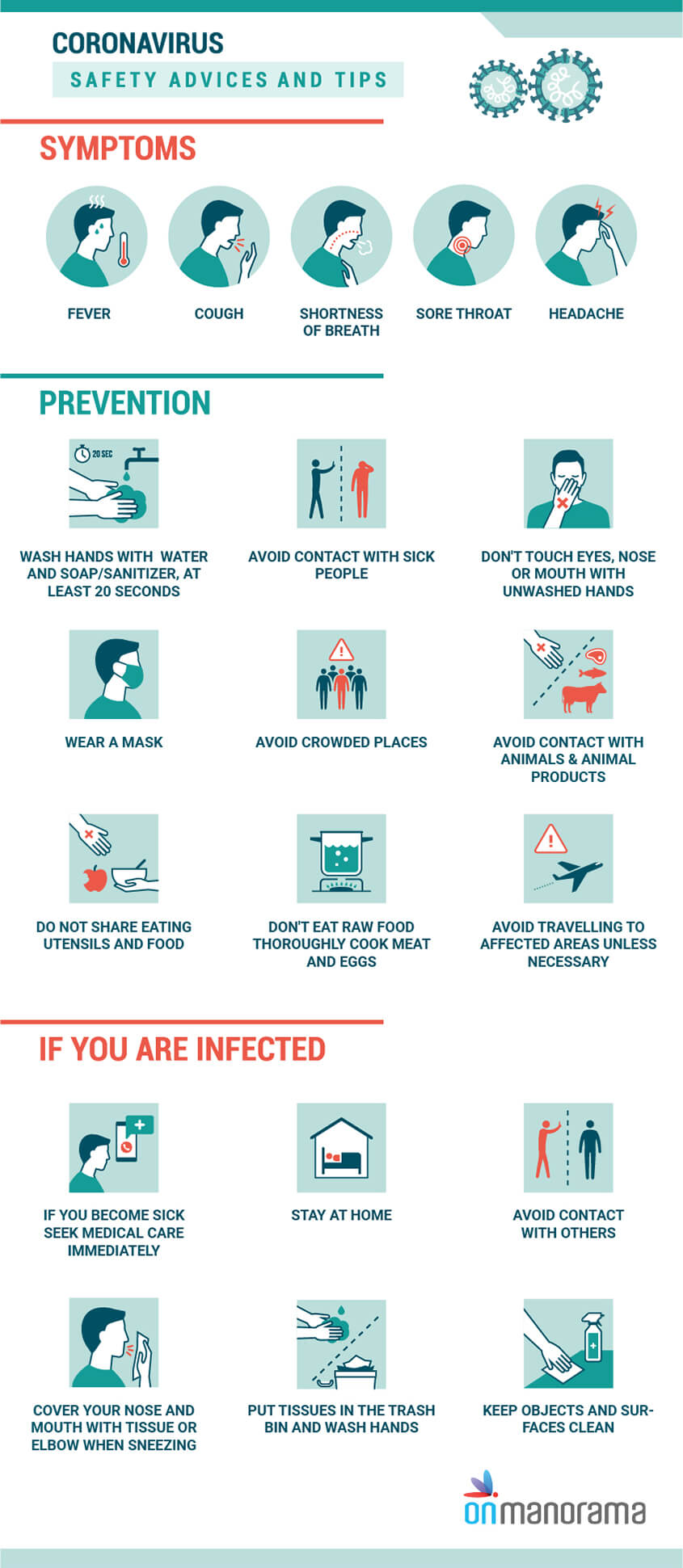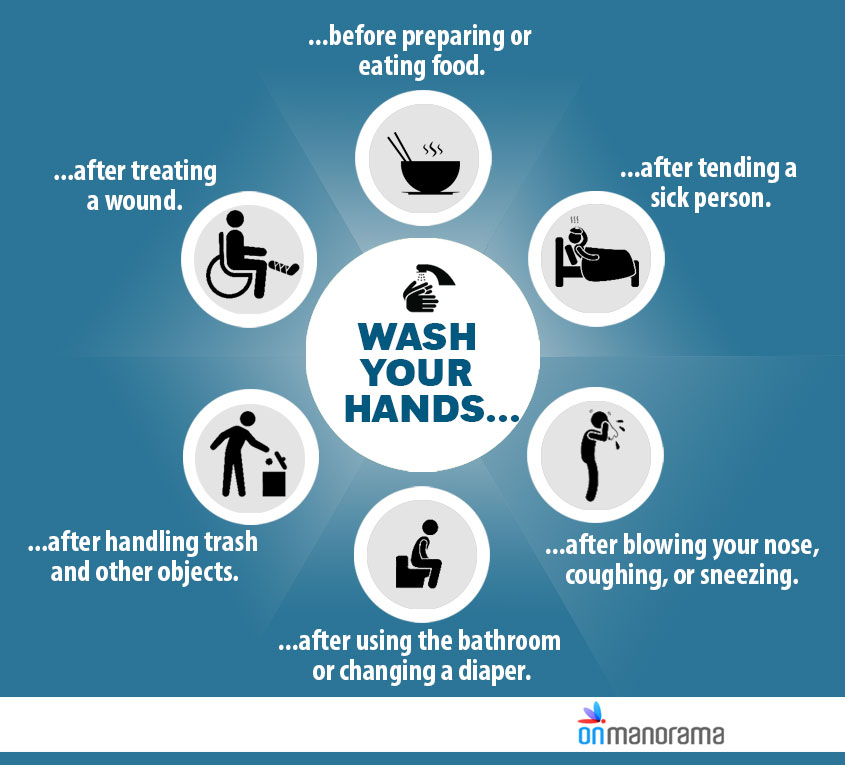In what looks like an encouraging sign, COVID-19 spread in Kerala looks virtually under control.
Two individuals who tested positive on Sunday were not second-stage victims, or were not infected by positive cases already in isolation in hospitals. For the moment, this means the Health Department's quarantine and isolation strategies are working fine.
Both the newly-infected were primary victims or had come to Kerala with the infection; one a UK national who tried to sneak out of the country and a Thiruvananthapuram-based doctor who returned from a foreign course in Spain.
This takes the number of active cases in Kerala to 21. In total, Kerala has reported 24 cases, including three patients who were discharged last month after they recovered from the coronavirus.
In the initial stage, when the contagion exploded in Italy, eight individuals who turned positive were second-stage victims who were infected by the Pathanamthitta family who had returned from Italy on February 29.
The UK national's travels through Kerala is a worry but 'contact tracing' is progressing in full swing. The British citizen and his wife had decamped from KTDC's Tea County in Munnar just before health officials reached the resort to pick him up. He was spotted just when he was about to board the plane.
The infected foreign national and his wife are now isolated in Kalamassery Medical College. Sources said he was cooperating. A flow chart of his travels has already been published. The doctor who returned from a foreign course had behaved responsibly, and therefore it is highly unlikely that he has transmitted the virus. Still, his close contacts, and those who were with him in his flight, are under surveillance. He is in isolation in Thiruvananthapuram Medical College.
To further prevent this human-human transmission, the government launched a unique campaign called 'Break the Chain' on Sunday. The objective, as the name suggests, is to cut the chain of the virus's progression.
Health Minister K K Shailaja, while launching the campaign, said the hand is the first point of contact with the virus. “So wash your hands regularly. It is from your hands the virus enters your body. Hand hygiene is the most important thing,” the minister said.
As part of the campaign, the minister wants all offices and public spaces like bus stands and railway stations to employ hand rubs. “Say for instance when you come into an office, use the hand rub at the entrance or reception. Then, if you are working in a large office space, use the hand rub placed at the entrance of your working hall before sitting down at your desk,” the minister said.
She said large apartment complexes can have hand rubs placed inside a kiosk erected for the purpose at the lowest floor or near the elevators. “You can rub your hands with the sanitiser before pushing the elevator switch,” Shylaja said. This way, the minister hopes to break the onward charge of the virus that moves from one person to other with a speed and cunning that could make a football coach hold his head in disbelief. “If all of us can begin to develop this new habit, we can break hundreds, thousands, even lakhs of such potential chains. The density of the virus will thus come down, the minister said.
She acknowledged the shortage of hand rubs and sanitisers in the market. “We know it is in short supply. But you don't have to panic. A bar of soap and water would be enough. Soaps are not in short supply,” the minister said.
Shailaja said the 'Break the Chain' campaign was just additional precaution. “Other preventive measures like the use of masks by health workers and the use of towels to mask face while sneezing or coughing should be religiously followed,” she said.
The 'Break the Chain' concept was mooted by Mohammed Asheel, the executive director of Kerala Social Security Mission.
It is clear that the government has stepped up surveillance dramatically. At the moment, 10,944 individuals are under surveillance, a day ago it was less than 6,000. Of this, 10,655 are quarantined in heir homes. Only 289 are in hospitals. The number in hospitals has shown only a marginal increase.
The serum samples of 2,147 suspected persons have been sent for testing. 1,514 have tested negative.
Kozhikode has the highest number of people under observation, 2,683, followed by Pathanamthitta (1,638), Thrissur (1,574) and Thiruvananthapuram (1,449). Idukki (75), Wayanad (146) and Palakkad (179) have the lowest number under observation.
Given that the situation is fairly under control, the minister also said there was no reason for unnecessary panic. “We have only asked that mass gathering should be avoided. But this does not mean that life should come to a stand still. Basic activities of life like going to offices and shops should go on as usual,” the health minister said.
Chief Minister Pinarayi Vijayan, after a high-level meeting on Sunday, ordered that all bus routes should operate as usual. There were complaints that buses had stopped plying in certain routes. The chief minister instructed that KSRTC and the Police should ensure that private and public bus services functionally normally.



















